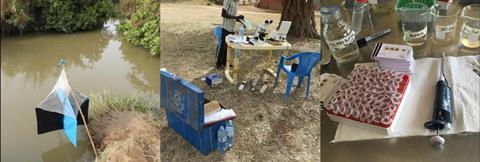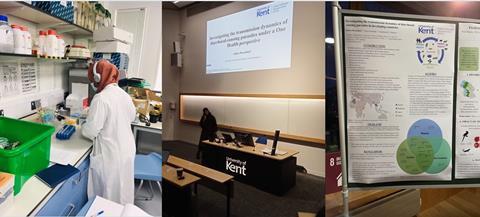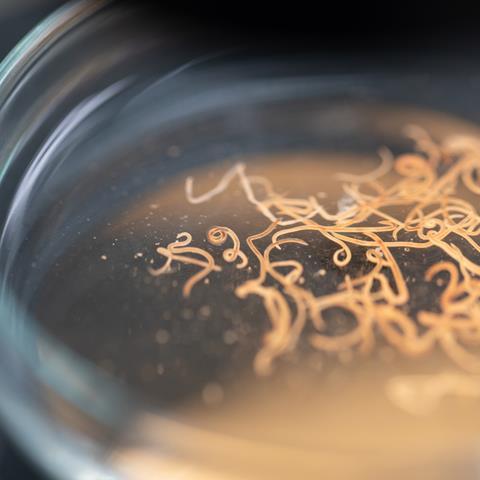I am a postdoctoral research associate with a PhD in microbiology. During my undergraduate studies, I had no clear idea of the career path I wanted to follow. That changed when I began my MSc in Infection Biology at Uppsala University, where I developed a strong interest in parasitology and the impact of parasitic diseases in developing countries. During my studies, I became increasingly aware that such parasitic infections pose a significant burden in low- and middle-income countries, and I was especially intrigued to learn that many of them are easily preventable.
My interest in parasitology led me to seek out opportunities in the field, and eventually to a fellowship with the International Livestock Research Institute (ILRI) in Uganda.
During my time in Uganda, I investigated the presence of Trypanosoma species in pigs and tsetse flies in the rural districts of Arua and Maracha in West Nile, with a particular focus on the role pigs may play as reservoirs for human infectious species. This was my first real experience of independent research, and it completely shifted my perspective. Working in rural Africa, I saw how science could have an impact on communities. The fellowship was the turning point that set me on the path to a PhD and inspired my long-term goal of leading my own independent research in the future.

Between 2020 and 2024, I pursued a PhD in microbiology with a focus on the transmission dynamics of intestinal parasites in developing countries. My research was conducted across Algeria, Uganda, Thailand, Bangladesh, and Iraq, and I approached the work from a One Health perspective, where I investigated how humans, animals, and the environment contribute to the transmission of clinically and veterinary-important intestinal parasites. I also explored how these infections affect the gut microbiota in wild chimpanzees.
The PhD years were foundational, both scientifically and personally. Like many researchers, I struggled with the inevitable frustrations of failed experiments. Also, starting my PhD during the COVID-19 pandemic added further layers of difficulty. Despite these challenges, the experiences were valuable and allowed me to build adaptability. Over time, I learned to view challenges and setbacks as part of the learning process.
At the same time, my PhD opened opportunities for me to grow beyond the lab. I was included in collaborations and went on to set up projects, mentor students, and present at conferences, all of which expanded my skills and professional network.

After completing my PhD, I was interested in continuing in academia. Today, I am working as a postdoctoral researcher at Heriot-Watt University where I am working on optimising a water filtration system designed to capture pathogens, with a particular focus on Cryptosporidium. This work connects microbiology with public health and engineering, while also emphasising the importance of prevention. As a postdoc, I enjoy the independence of leading my own projects whilst also continuing to learn from colleagues and collaborators, which allows me to grow as a researcher.
Reflecting on my journey so far, I feel that having a clear idea of what I wanted to pursue early on has been a real advantage. That clarity made the decision to pursue a PhD easier and kept me motivated.
Looking ahead, I am dedicated to continuing in academia and research, with a particular focus on the prevention of parasitic diseases. My goal is to build a career that highlights preventative strategies within a One Health framework, contributing to efforts to reduce the burden of infections in developing countries. Having seen the impact of parasitic diseases first-hand, I believe strongly in the importance of prevention and early intervention.
Further Reading
Sadiya Maxamhud - Google Scholar








No comments yet